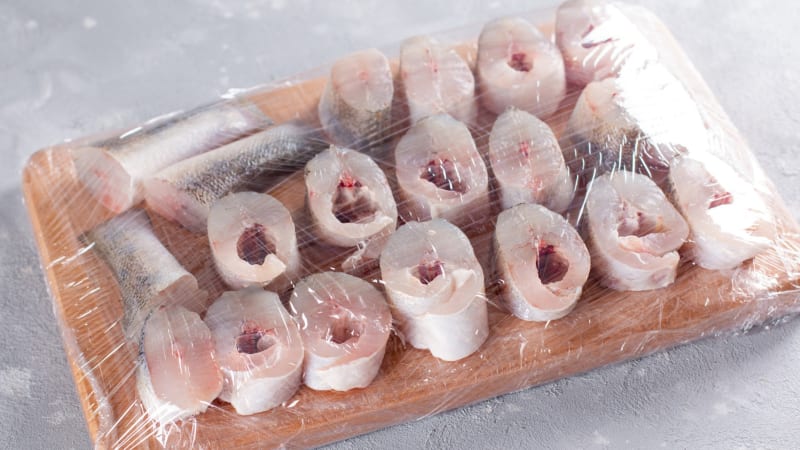Freezing Fish: Tips to Preserve Freshness and Flavor

As an angler or seafood enthusiast, knowing how to freeze fish properly is key to enjoying your catch or store-bought fish long after it's fresh. Whether you just got back from a fishing trip on the Florida coast or picked up a fresh fillet at your local fish market, freezing fish ensures you always have a delicious meal ready to go.
Why Freeze Fish?
You might wonder—why bother freezing fish in the first place? Here are some great reasons:
- Long-Term Preservation: Freezing fish lets you store it for months without sacrificing freshness, perfect for anglers who bring home large catches from lakes like Michigan or reservoirs in Texas.
- Flavor and Texture: When done right, frozen fish retains the fresh taste and tender texture, ensuring your grilled salmon or fried catfish tastes just as amazing.
- Reduce Waste: Freezing is a smart way to prevent waste, especially if you’ve caught more fish than you can eat in one sitting.
How to Prep Fish for Freezing
Preparation is everything. Here’s how to set your fish up for success in the freezer:
- Clean Thoroughly: Wash your fish under cold water to remove dirt, scales, and bacteria. Use a paper towel or a clean kitchen cloth to pat it completely dry. Moisture leads to ice crystals, which you want to avoid.(Tip for Great Lakes anglers: After cleaning, consider filleting large fish like walleye or pike for easier portioning.)
- Portion It Out: Cut your fish into portions that match what you’d use for a meal. This way, you won’t have to thaw and refreeze large pieces.
- Use Airtight Packaging: Invest in quality freezer bags or vacuum-sealed bags to protect your fish from freezer burn. Label each bag with the fish type and date.
- Pre-Freeze Larger Pieces: For bigger fish like salmon or halibut, wrap the portions in plastic wrap before putting them into a freezer bag. This adds an extra layer of protection.

Tips and Tricks for Freezing Fish
To make the most of your frozen fish, follow these pro tips:
- Whole Fish vs. Fillets: You can freeze both, but gut and clean whole fish thoroughly to avoid spoilage.
- Avoid Overcrowding: Lay the fish flat in your freezer to allow for even freezing. If you caught a lot, like a big haul of crappie in Alabama, freeze the fish in smaller batches.
- Keep It Cold: Your freezer should be at or below 0°F (-18°C) to lock in freshness.
- Use a Glaze for Extra Freshness: Dip the fish in ice-cold water before freezing. This creates a thin layer of ice that prevents freezer burn, especially for lean fish like trout.
Storage Tips for Frozen Fish
Now that your fish is frozen, proper storage will ensure it stays tasty for months:
- Don’t Forget the Timeline: Most fish varieties stay good for 3-6 months in the freezer. For oily fish like mackerel or bluefish, aim to consume within 2-3 months.
- Check for Freezer Burn: If your fish looks dried out or discolored, freezer burn may have set in. While safe to eat, the flavor won’t be ideal.
- Label Like a Pro: Always note the freezing date and fish type. This is especially useful if you’re storing different species like bass, catfish, or tilapia.
Thawing Your Fish the Right Way
Proper thawing is just as important as freezing. Here’s how to do it safely:
- Slow and Steady: Place the fish in the fridge overnight for the best results.
- Quick Thawing: If you’re in a rush, submerge the fish in cold water while it’s still in its airtight packaging. Change the water every 30 minutes.
Pro Tip: Never thaw fish at room temperature or in warm water! This can encourage bacteria growth and affect texture.
FAQs
Can I freeze fish with the head on?
Yes! Just make sure it’s gutted and cleaned thoroughly. Many anglers in the Southeast prefer freezing whole fish like bream or redfish for frying later.
Should I wash fish before freezing?
Absolutely. Clean fish helps prevent bacteria growth and ice crystals during freezing.
Can I refreeze thawed fish?
It’s best not to. Refreezing can impact flavor and texture while increasing the risk of spoilage.
A Quick Note on Risks
Although freezing fish is safe and effective, take care to ensure freshness before freezing. Freezing doesn’t fix bad fish. And when thawing, avoid shortcuts that could introduce bacteria.
Wrap-Up
Freezing fish is a fantastic way to preserve your catch, whether you’re fishing on the icy rivers of Alaska or the warm waters of the Gulf Coast. Follow these steps, and you’ll enjoy fresh-tasting fish every time.
So, what’s your favorite fish to freeze and cook? Drop a comment or share your tips for freezing your haul! Stay hooked, and happy fishing!